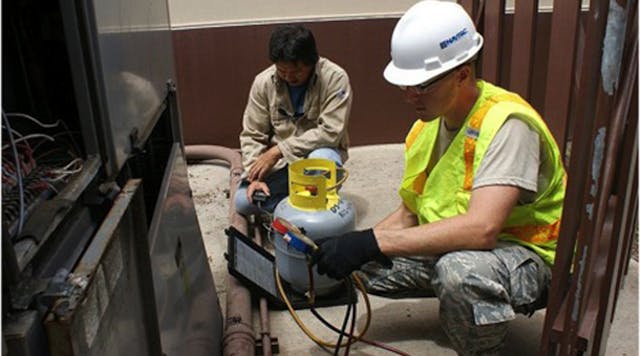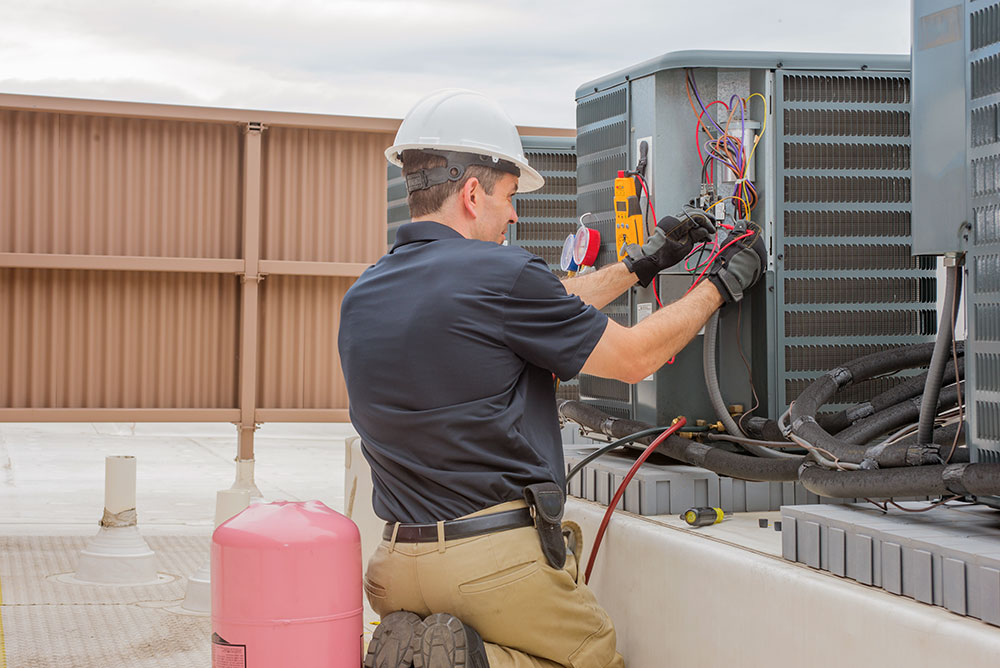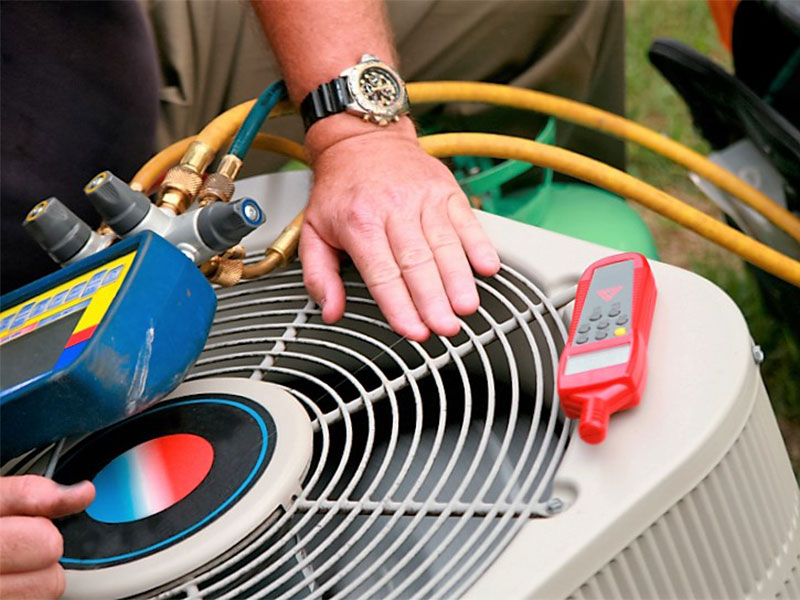HVAC Troubleshooting Guide Canoga Park Request a Consultation - HVAC Contractor

HVAC systems embody a broad range of functions beyond simply cooling. They incorporate heating systems, which might embody furnaces or heat pumps to maintain heat throughout colder months. Ventilation is another important aspect, answerable for exchanging or changing air in an area to maintain up air quality and take away moisture, odors, and pollutants. This complete strategy to indoor climate control contrasts sharply with air conditioning, which solely addresses temperature regulation.
Air conditioning systems are usually designed to cool an area by eradicating heat from the indoor air. These systems perform by circulating refrigerant through a sequence of coils, absorbing heat from the air inside a constructing and releasing it outside. This process not solely lowers the temperature however also can cut back humidity levels, creating a extra comfortable environment. However, air conditioning fails to supply heating or air flow, which are necessary for year-round climate control.
The differences in complexity between HVAC and air conditioning systems are vital. An HVAC system is extra complicated and contains a quantity of components working collectively. In addition to air conditioning units, HVAC systems commonly include components like ductwork, thermostats, and varied controls. These components work in concord to ensure that a constructing stays snug throughout varying weather conditions.
Licensed HVAC Technician Canoga Park Find a Contractor
Maintenance requirements also differ between HVAC techniques and standalone air conditioning methods. Regular maintenance of HVAC methods includes checking all components, from the furnace and air conditioner to air flow ducts. Ensuring that these components function correctly is crucial for total system efficiency and longevity. In contrast, maintaining an air conditioning unit primarily involves cleansing or changing filters, checking refrigerant levels, and making certain that the condenser is clear. While air conditioning models require care, the scope is narrower than that of comprehensive HVAC methods.
Energy efficiency is one other key area where distinctions arise. Modern HVAC techniques are designed to maximise energy efficiency and will embrace features similar to programmable thermostats and variable pace followers. These options assist scale back energy consumption, which could be notably beneficial in regions with excessive temperatures. Air conditioning models even have power efficiency scores, but they lack the holistic options that an HVAC system offers, ultimately impacting general energy use in a building.

In phrases of system sorts, HVAC can incorporate a quantity of designs. These might include central systems, cut up systems, and packaged techniques, every helpful in numerous purposes relying on the size and structure of the building. In contrast, air conditioning techniques are primarily defined by varieties corresponding to window items, moveable items, break up methods, and central air conditioning, which mainly serve the cooling perform.
Energy Efficiency HVAC Canoga Park Find an HVAC Contractor
The initial installation costs can even range considerably between HVAC and air conditioning systems. A full HVAC system generally requires a higher upfront investment as a result of its complexity and vary of options. However, the long-term savings on vitality bills and maintenance can justify this investment. Air conditioning items, while usually cheaper, may not provide the same level of efficiency and luxury benefits over time.
Climate impact considerations play a job within the dialogue between HVAC and air conditioning systems. HVAC techniques can improve air circulation and air flow, which is important for maintaining wholesome indoor air quality. Proper air flow removes indoor pollutants and moisture, decreasing the chance of well being points associated to poor air quality. Air conditioning methods alone don't tackle these issues and primarily give attention to cooling, which may lead to stagnant indoor air if not paired with adequate air flow options.
Thermostat Installation Canoga Park Tips for Hiring an HVAC Contractor
Installation professionals usually require specialised training in HVAC because of its complexity. This training encompasses various elements of heating, cooling, ventilation, and the interrelationship between these functions. Successful installation of an HVAC system calls for a deeper understanding of how these components work collectively to create a comfortable indoor environment. In distinction, air conditioning specialists may focus solely on cooling systems, limiting their scope of expertise.
In abstract, recognizing the differences between HVAC and air conditioning can information decision-making when it comes to selecting systems for residence or commercial areas. HVAC methods supply complete control over the indoor setting by delivering heating, cooling, and ventilation solutions. Indoor Air Quality Canoga Park. Air conditioning, while crucial for cooling, represents just one aspect of indoor climate control. Investing in an HVAC system can lead to simpler temperature regulation, improved air quality, and energy financial savings over time.
Energy Efficiency HVAC Canoga Park Tips for Hiring an HVAC Contractor
Ultimately, understanding these distinctions can lead to informed selections about climate control techniques. Whether you lean towards a full HVAC setup for year-round consolation or a simpler air conditioning solution for instant reduction from the warmth, being informed empowers efficient decision-making that meets each consolation and budgetary wants.
- HVAC (Heating, Ventilation, and Air Conditioning) encompasses a broader spectrum of climate control, while air conditioning focuses solely on cooling indoor areas.
- HVAC methods embrace heating components like furnaces or heat pumps, ensuring consolation during colder months in addition to cooling.
- Ventilation is a key side of HVAC, facilitating fresh air circulation and improving indoor air quality, which air conditioning doesn't tackle immediately.
- Energy efficiency standards may differ; HVAC systems typically goal for a balanced approach to energy use across heating and cooling, whereas air conditioners primarily give consideration to cooling efficiency.
- HVAC techniques can embody dehumidifiers and air filtration technologies, enhancing indoor consolation by controlling moisture and allergens, features sometimes absent in commonplace air conditioning items.
- The installation and maintenance necessities for HVAC methods are generally more complex, necessitating specialised data and repair compared to typical air conditioning units.
- HVAC options could use zoned methods for focused temperature control in different areas, whereas air conditioning items usually cool whole spaces uniformly.
- Cost implications range, as HVAC techniques incorporate a quantity of functionalities and can be dearer initially, whereas fundamental air conditioning units could be extra budget-friendly.
- The operational framework differs: HVAC techniques usually work through a network of ducts for airflow, while many air conditioning items operate via standalone setups or window placements.
- Regulations and licensing for HVAC professionals usually require more extensive training due to the system's intricacies, whereas air conditioning technicians may have less stringent necessities.
What is the primary distinction between HVAC and air conditioning?
Duct Cleaning Canoga Park Top 10 Best HVAC Contractor
HVAC stands for Heating, Ventilation, and Air Conditioning, whereas air conditioning refers particularly to cooling a space. HVAC techniques provide comprehensive climate control, including heating and air flow.
Why is HVAC considered more advanced than air conditioning?
HVAC techniques combine a number of functions—heating, cooling, and ventilation—requiring a network of interconnected components, making it extra advanced than normal air conditioning items that only manage cooling.
AC Installation Canoga Park Your HVAC Contractor
Can a house have air conditioning with out an HVAC system?

How do HVAC methods improve indoor air quality?
HVAC Troubleshooting Guide Canoga Park Commercial HVAC Contractor
HVAC methods embrace filtration click here for more info and air flow features that assist take away pollution, control humidity, and flow into contemporary air, thereby improving indoor air quality extra effectively than air conditioning units alone.
Are HVAC systems more energy-efficient than air conditioning units?
Generally, HVAC techniques can be extra energy-efficient as they are designed to control all aspects of climate control. However, efficiency is dependent upon the particular fashions and applied sciences used.
Can I substitute my air check my blog conditioning unit with an HVAC system easily?
HVAC Troubleshooting Canoga Park AC & Heating Services - HVAC Contractor
Replacing an air conditioning unit with an HVAC system requires careful planning and should involve additional installation prices, as you have to combine heating and ventilation components into your present house.
HVAC methods typically require extra extensive maintenance, including checking varied components like thermostats and ductwork. In distinction, air conditioning items often want less complicated maintenance, like filter changes.
Licensed HVAC Technician Canoga Park Find An HVAC Contractor
How do I resolve if I need HVAC or simply air conditioning?
(Smart HVAC Systems Canoga Park)

Are there any value differences between HVAC and air conditioning systems?
Zone Control HVAC Canoga Park HVAC Repair and Installation Contractor
Yes, HVAC systems generally come with larger upfront installation costs and ongoing maintenance fees, whereas air conditioning items tend to be extra reasonably priced however could incur larger operating prices if used extensively. HVAC Emergency Repairs Canoga Park.